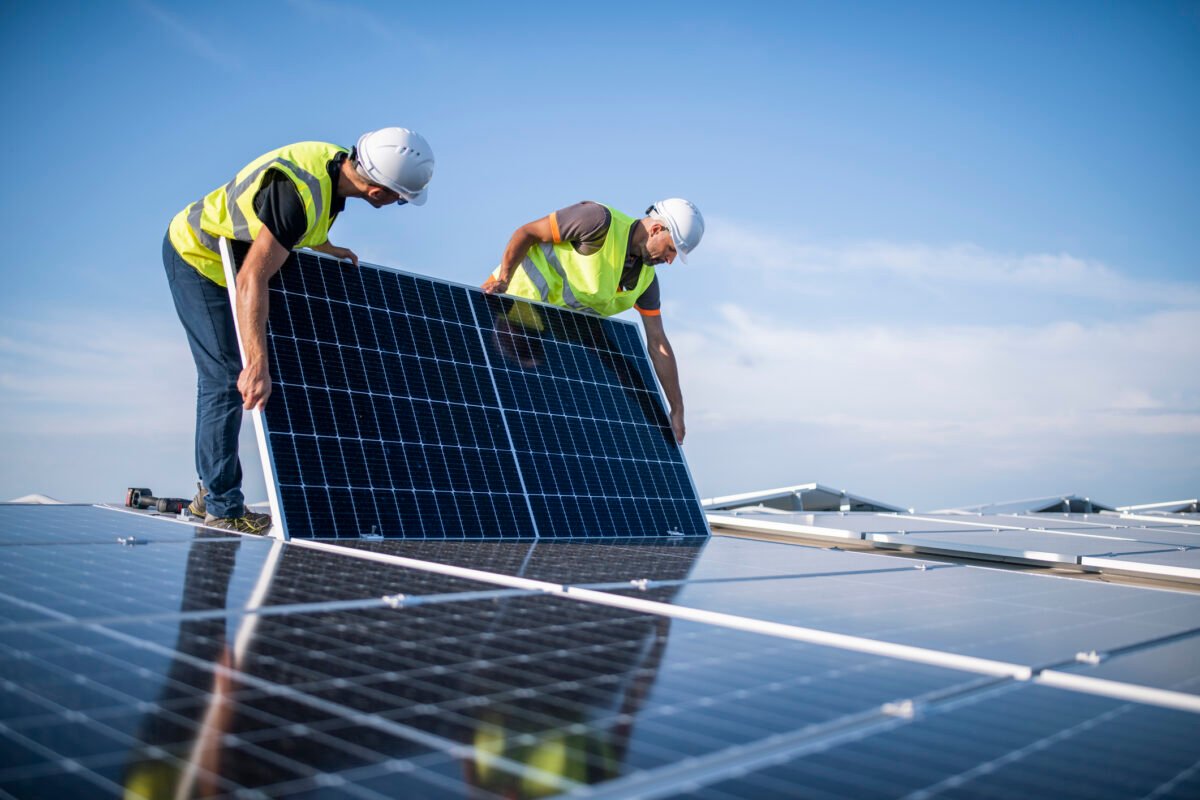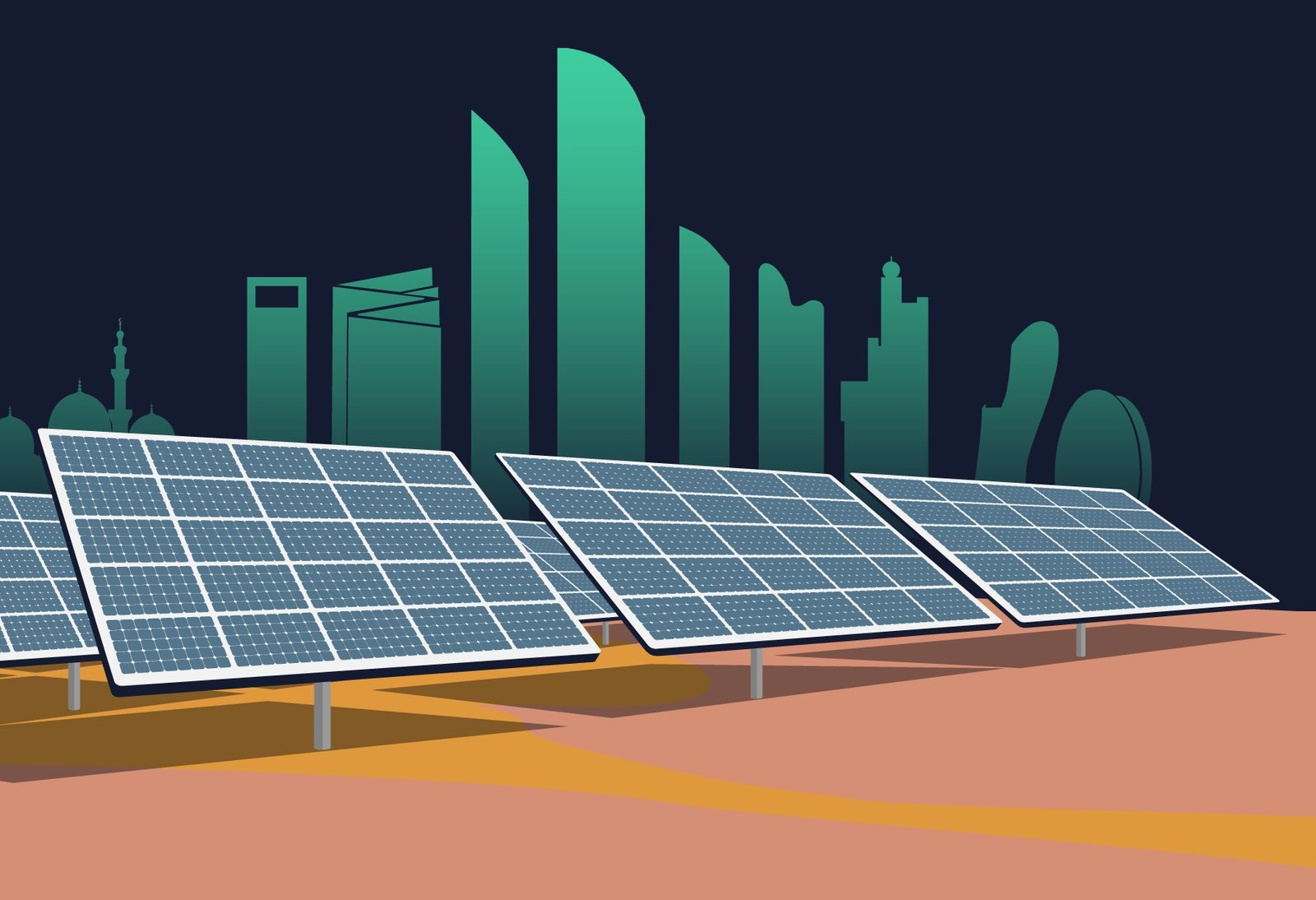A steady increase in solar leasing across Saudi Arabia is reshaping the Kingdom’s commercial and industrial (C&I) energy landscape, as companies seek affordable, low-carbon alternatives to traditional power sources amid rising electricity costs and intensifying ESG demands.
According to a new industry report, Powering Saudi Arabia’s Future: The Business Case for Solar Energy, released by Yellow Door Energy and Solarabic, solar leasing models, where developers finance, build, and operate solar power systems at no upfront cost to the end-user, are rapidly gaining traction, offering a lifeline for companies battling margin pressure while navigating new regulatory realities.
“Saudi Arabia’s Vision 2030 signifies a crucial need for change. Solar leasing is more than just a financial solution; it is a strategic move for businesses committed to long-term sustainability, enhancing energy resilience, and staying competitive,” said Hisham Alhegelan, CEO Middle East for Yellow Door Energy.
Solar rooftop gains momentum
The report highlights a significant uptick in solar leasing activity within the Kingdom’s industrial zones. One standout example is the 2 MW rooftop project developed by Yellow Door Energy for global packaging firm SIG in Riyadh’s Second Industrial City. Covering four rooftops, the installation will generate 3.5 million kWh annually, cut 1,300 tonnes of carbon emissions, and help SIG meet its Climate+ goals, all without capital expenditure.
The shift toward leasing aligns with Saudi Arabia’s broader renewable energy ambitions, including the deployment of 40 GW of solar capacity by 2030 and a target of sourcing 50% of the country’s electricity from renewables. The government’s Net Zero 2060 pledge and the Liquid Fuel Displacement Program, aimed at replacing 1 million barrels per day of oil with renewables, are further accelerating solar adoption in sectors like water desalination, manufacturing, and logistics.
Policy tailwinds and financial incentives
Government-backed policies are playing a key role in making solar leasing financially viable. Under the Saudi net billing system, companies can export excess solar power to the national grid at wholesale prices. In parallel, self-consumption rules allow firms to generate up to 30 MWp of power on-site, reducing reliance on diesel generators and avoiding grid fees.
These mechanisms, the report notes, are fuelling a transformation in how businesses approach energy procurement, moving away from capital-intensive models toward flexible, outsourced energy-as-a-service solutions.
ESG pressures fuel corporate transition
Rising investor pressure and global regulatory frameworks such as the EU’s Carbon Border Adjustment Mechanism (CBAM) are pushing Saudi exporters to decarbonise rapidly. According to the report, companies that adopt solar are better positioned to access green bonds, sustainability-linked loans, and multinational supply chains increasingly tied to ESG performance.
The country’s youthful demographics are also shaping the market, with 74% of Saudis under 30 saying they prefer sustainable brands, a trend prompting businesses to prioritise renewable energy as part of broader brand and social strategies.
Leasing vs. CAPEX: A shift in corporate mindset
The report contrasts leasing with the traditional capital expenditure (CAPEX) model, under which businesses fully own and operate their solar systems. While CAPEX offers long-term returns, the complexity, high upfront costs, and maintenance burdens make it a less attractive option for many.
In contrast, the leasing model provides operational simplicity, performance guarantees, and a turnkey solution that includes everything from permitting to ongoing system maintenance. The model aligns incentives: developers earn based on system output, driving high uptime and clean energy generation.
Yellow Door Energy expands regional reach
With more than 400 MWp of awarded projects across the Middle East and Africa, Yellow Door Energy has become one of the region’s most prominent solar leasing providers. The company, backed by Actis, IFC, Mitsui & Co., and The Arab Energy Fund, has delivered clean energy to over 90 commercial clients, generating nearly one million MWh of electricity and offsetting 384,000 tonnes of carbon emissions.
Its pipeline includes flagship projects such as the 6.2 MWp rooftop system at Bahrain’s Majid Al Futtaim Mall and a solar carport at the Swiss International Scientific School in Dubai, winner of the 2023 Solar Project of the Year award.
Outlook: An inflection point for Saudi solar
With solar module prices down 40% and battery storage costs plummeting 90% over the last decade, hybrid solar-storage systems are now a feasible 24/7 alternative to grid electricity. As global energy demand surges, driven in part by data centre expansion, the report argues that Saudi businesses have a narrow window to capitalise on the cost and sustainability advantages of solar leasing.
“Solar leasing offers not just energy savings, but strategic resilience,” the report concludes. “Saudi businesses that act now will be best positioned to lead in an increasingly competitive and carbon-conscious global economy.”





